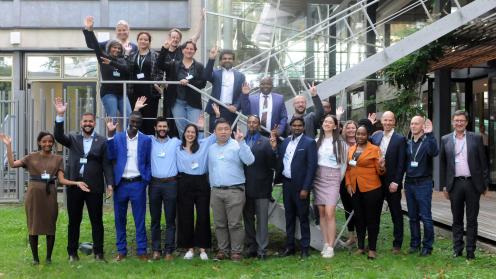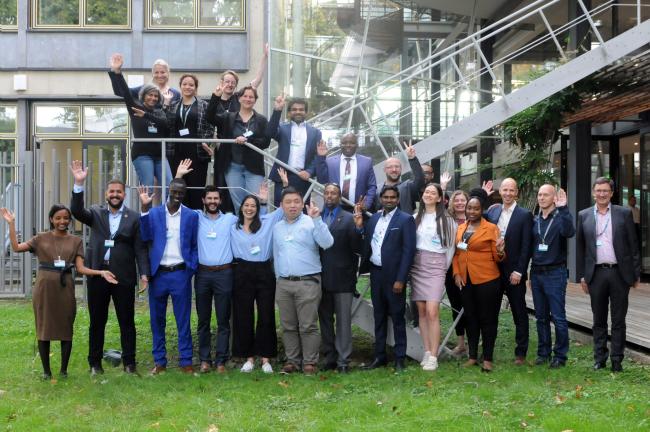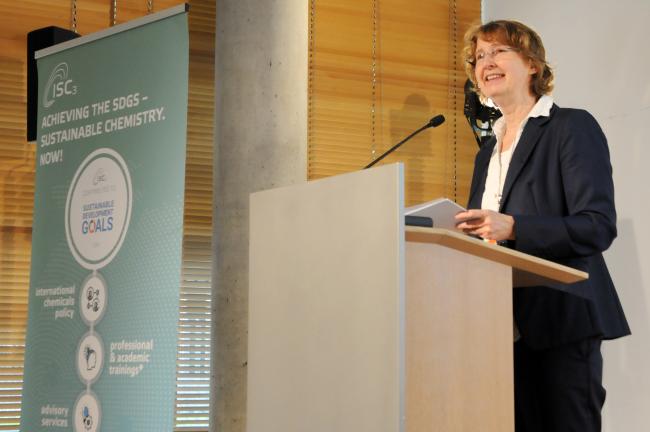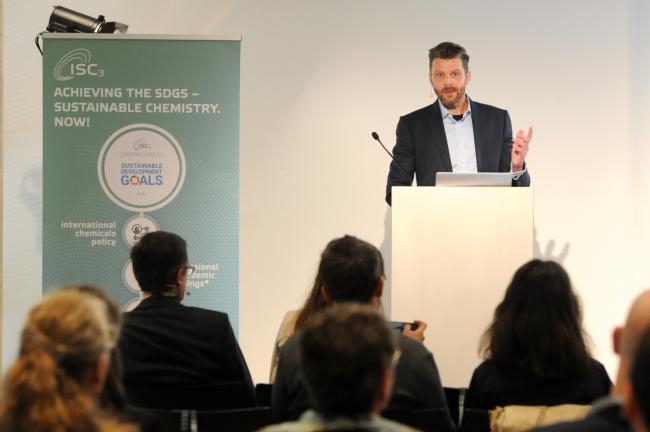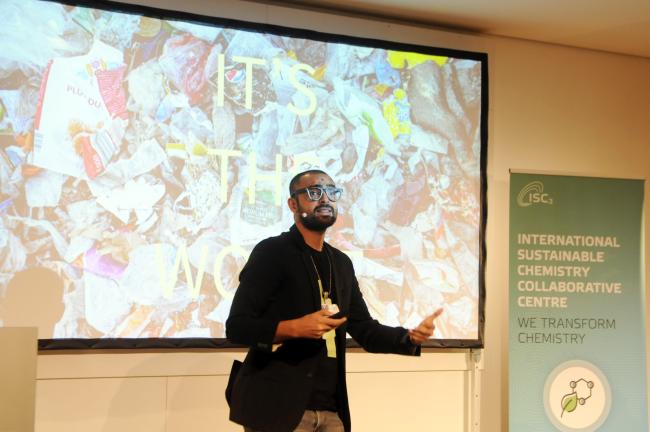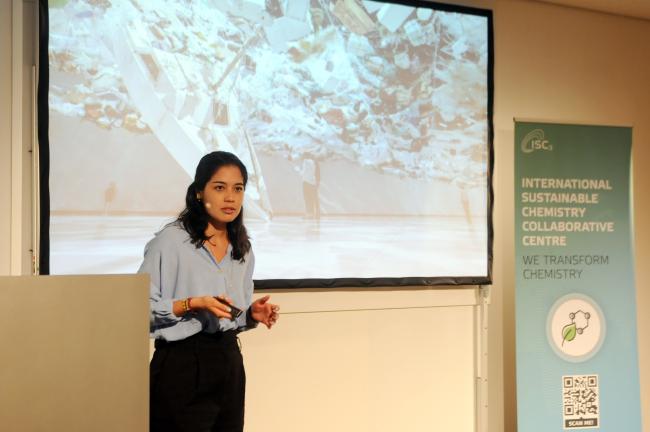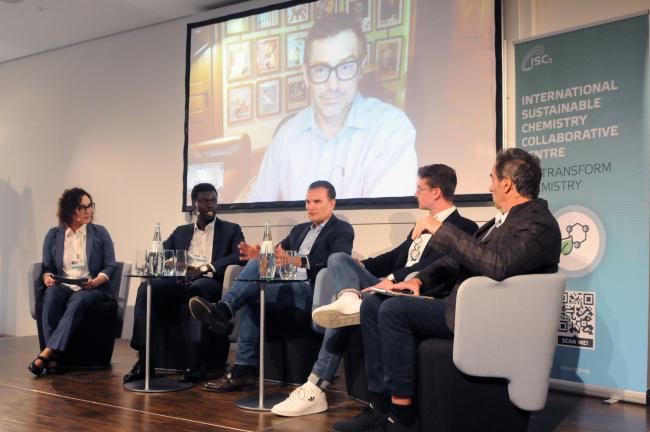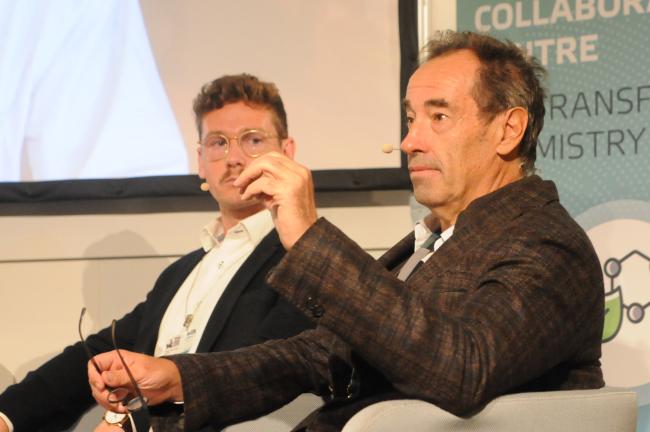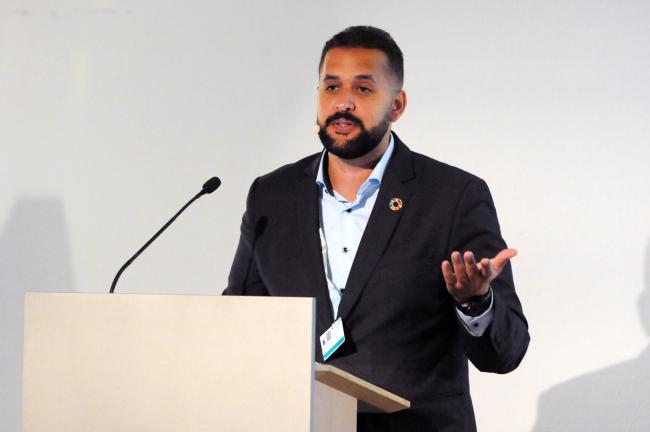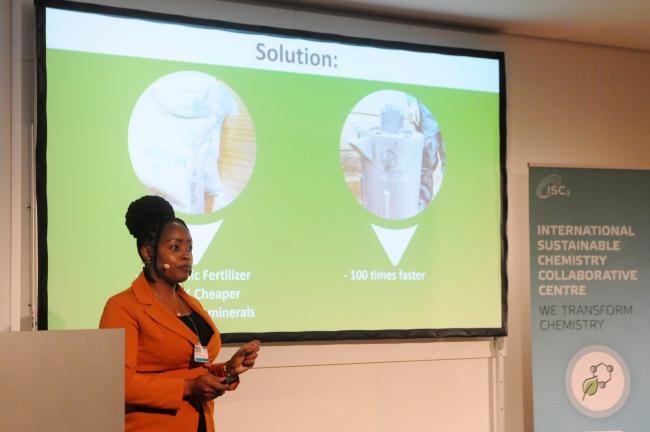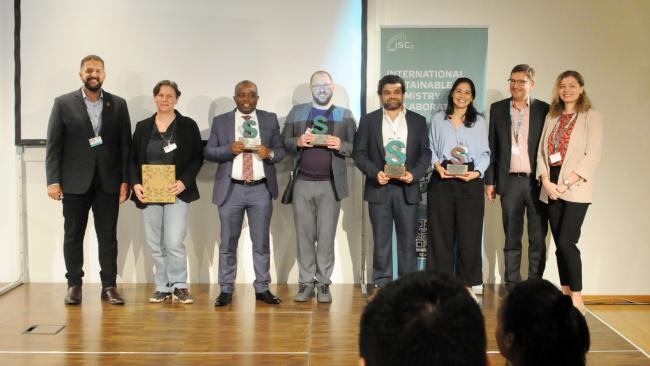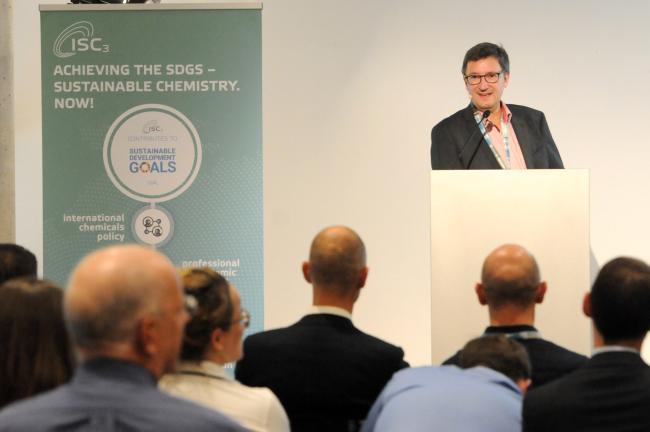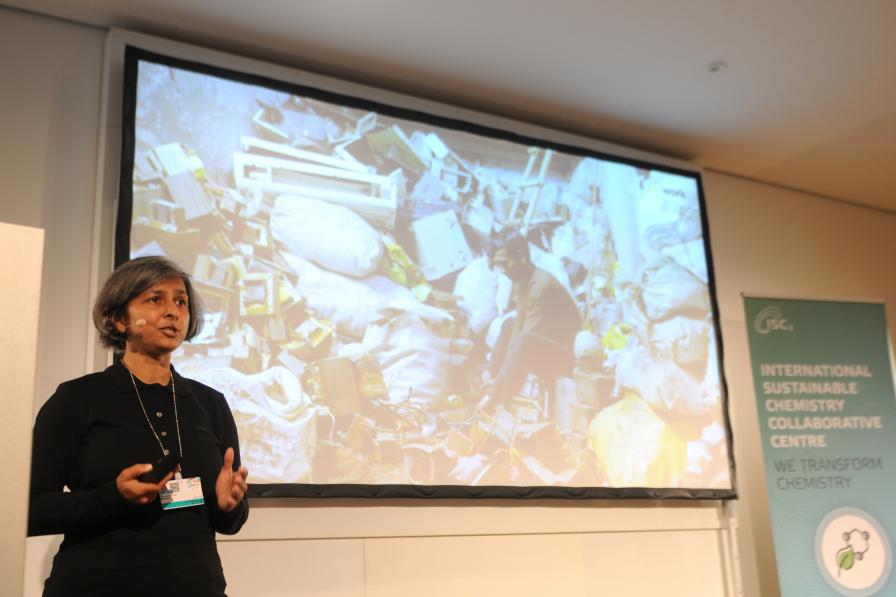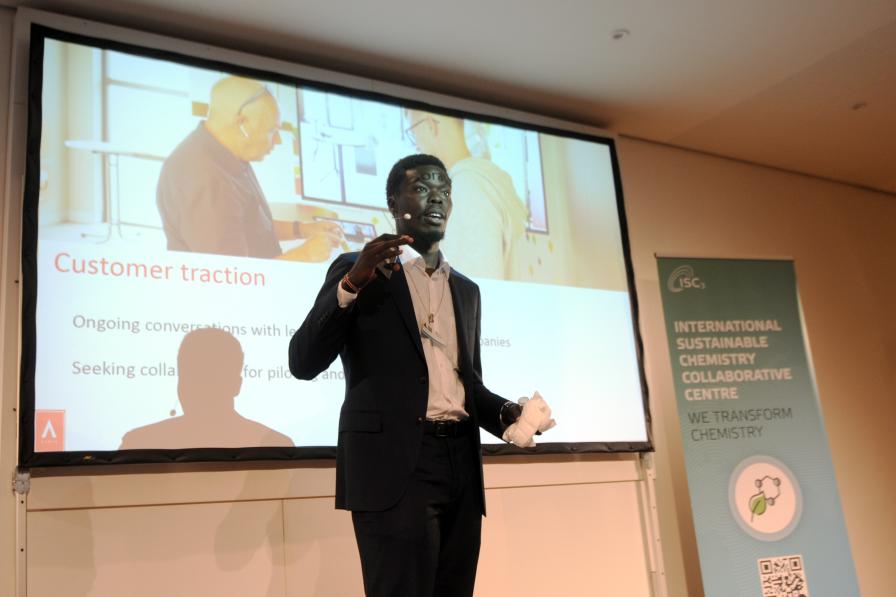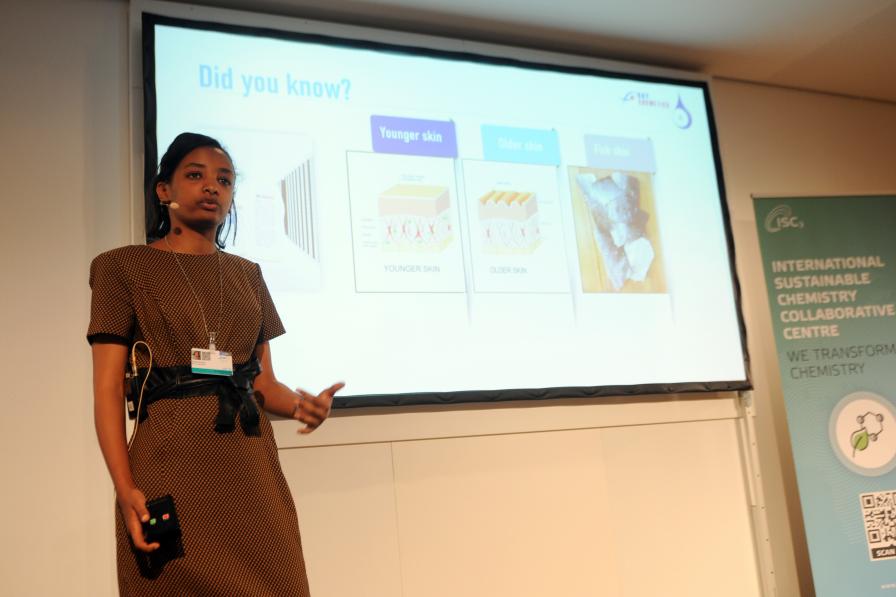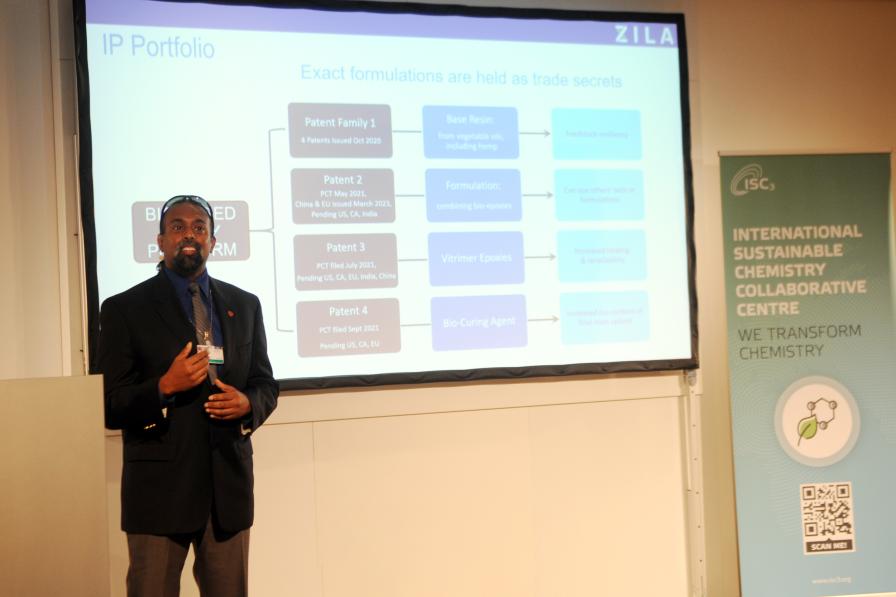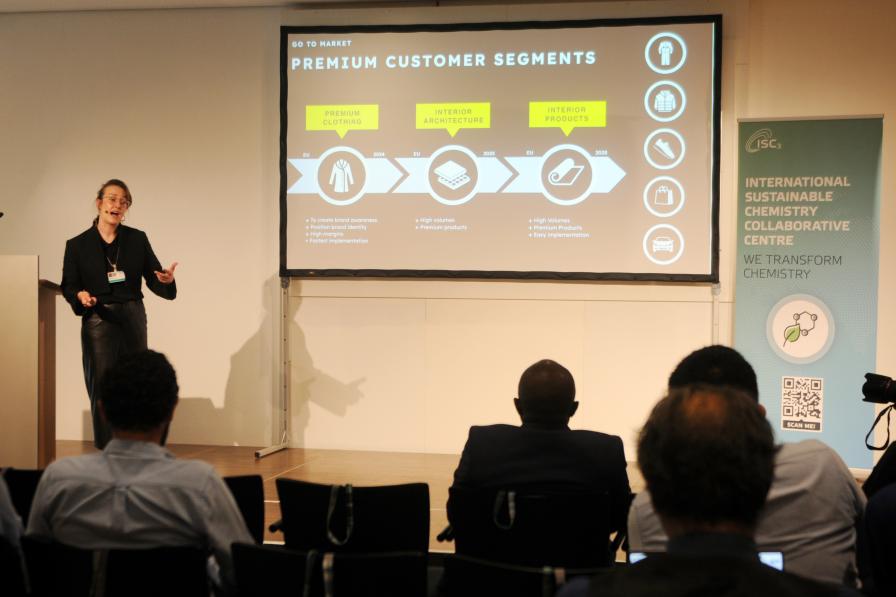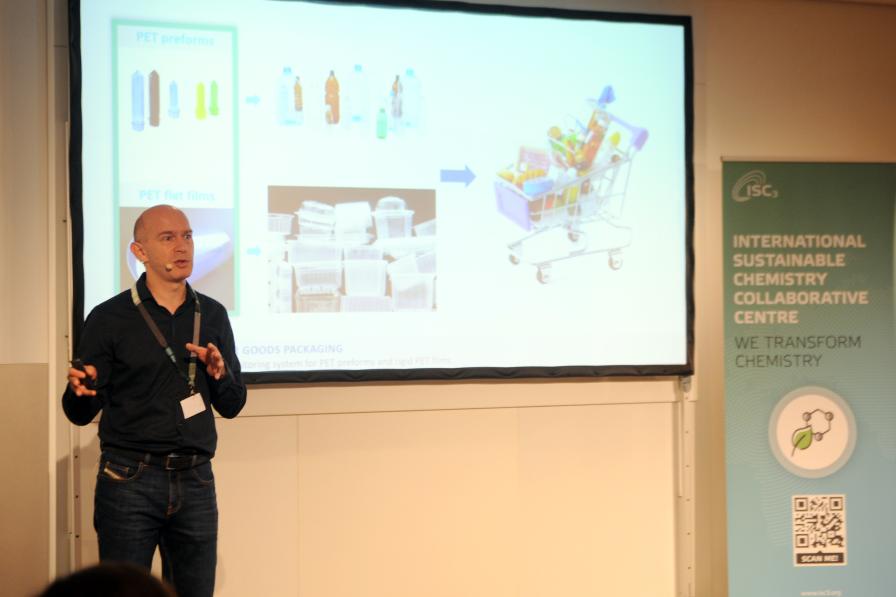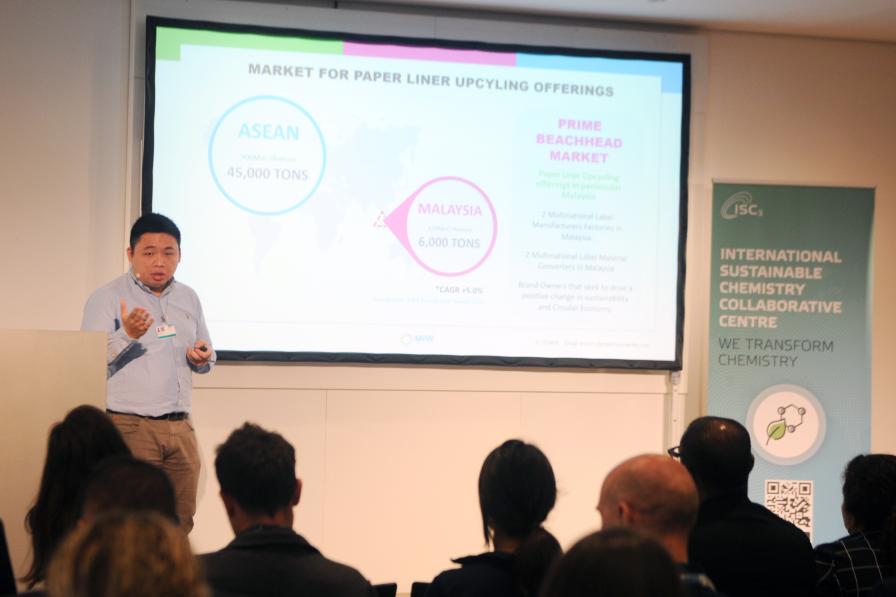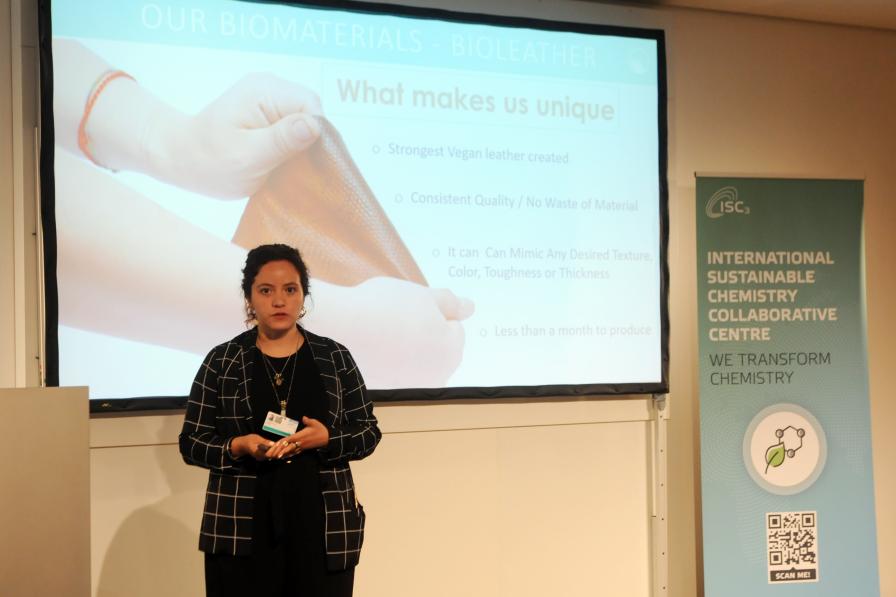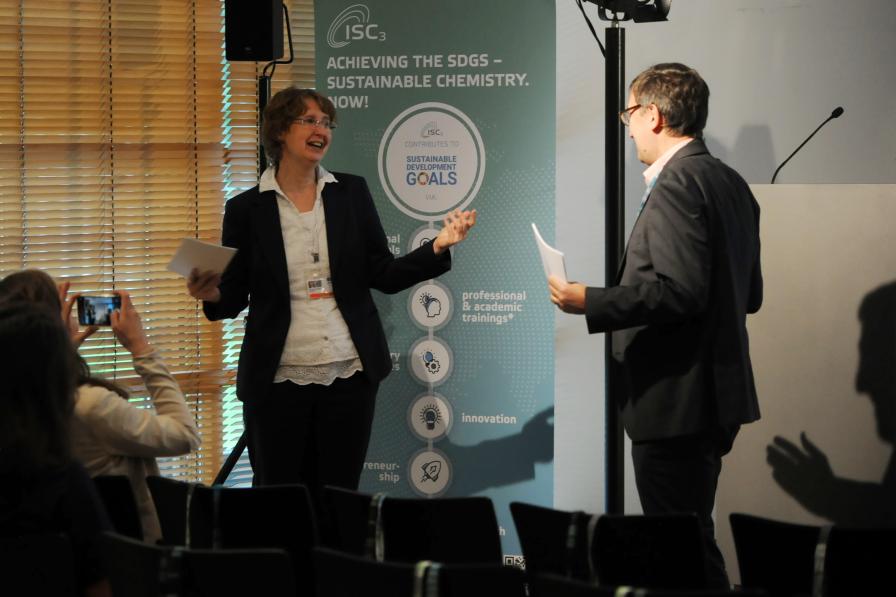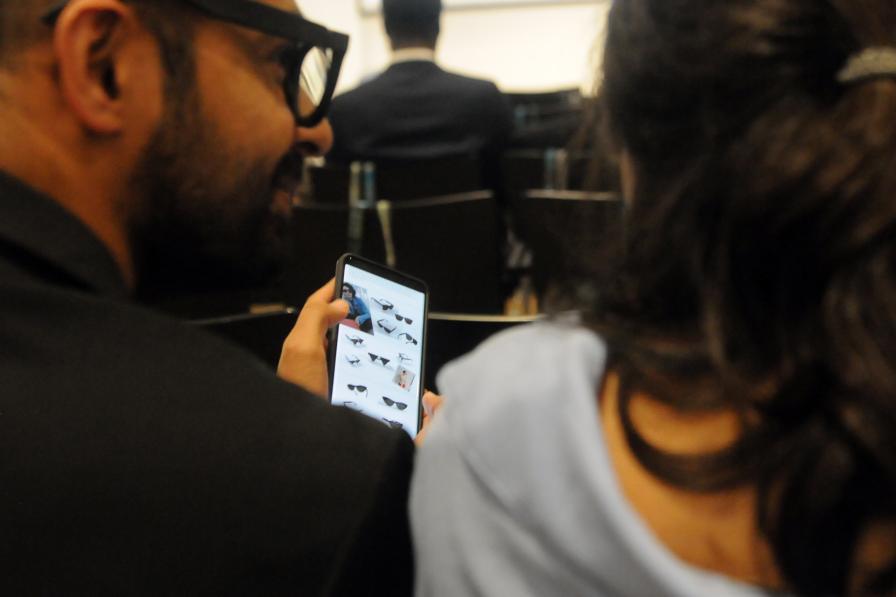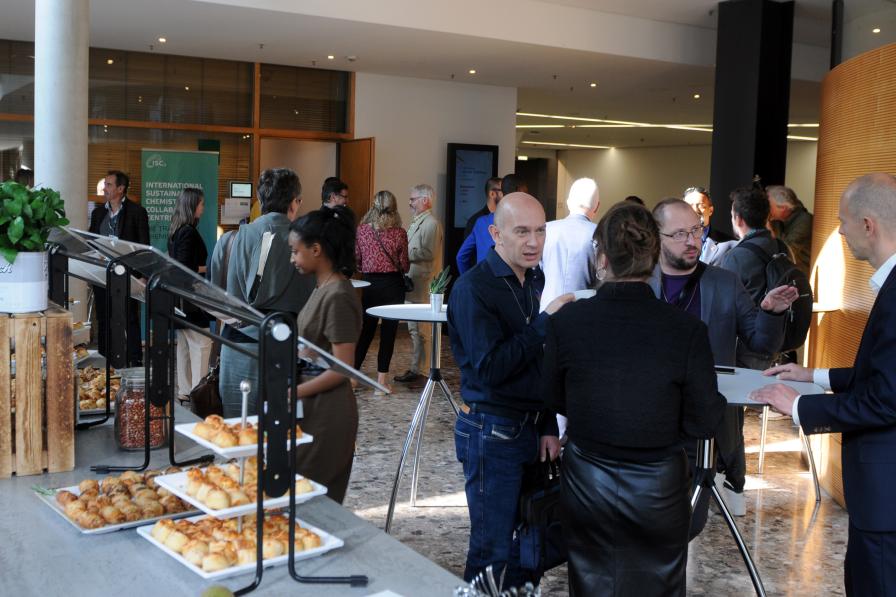About
The International Sustainable Chemistry Collaborative Centre (ISC3) fifth Investor Forum aimed to promote sustainable chemistry, inviting 18 startup companies from around the world to showcase their innovative work contributing to sustainability and circular economy and to link with potential investors.
The full-day ISC3 fifth Investor Forum took place in Bonn, Germany, as a special event of the fifth session of the International Conference on Chemicals Management (ICCM5). The event was moderated by Alexis Bazzanella, ISC3 Innovation Hub and DECHEMA, Germany, who opened the meeting, outlining the Forum’s programme, including innovation pitches and related awards.
Christiane Rohleder, State Secretary, German Federal Ministry for the Environment, Nature Conservation, Nuclear Safety and Consumer Protection (BMUV), stressed that sustainable solutions can inspire negotiations for the sound management of chemicals and waste. She highlighted the pitching sessions where startup companies meet investors and introduce their sustainable projects and innovative ideas, emphasizing that companies that operate sustainably need to find their place in the market and the required seed capital.
State Secretary Rohleder stressed the need to ensure that chemicals are designed sustainably and added that sustainable chemistry is among the innovations necessary to transform the economy. She noted the Global Chemicals Outlook indicates that the production capacity of the chemical industry doubled in 2000-2017 and will double again by 2030 due to population growth and megatrends. She stressed that the pressure to take action is enormous as global pollution, including chemical pollution, causes an unacceptable number of premature deaths and has dire economic consequences equal to 7.6% of the global Gross Domestic Product (GDP). She concluded, noting that chemicals are omnipresent and used in a variety of everyday applications, emphasizing that seeing them only as a problem does not provide the full picture as they can also be part of the solution for a safer and more sustainable world.
Thomas Wanner, ISC3, Germany, underscored that sustainable chemistry is an innovation driver for the future of the sound management of chemicals and waste. Noting that 90% of global production depends on chemical products, 10% of the world's total energy is consumed in the chemical industry, and 8% of greenhouse gas (GHG) emissions are attributable to the chemical industry, he stressed that sectoral transformation is urgently needed. He highlighted the vision of sustainable chemistry for a sustainable world, involving a holistic innovative approach for a global transformation within planetary boundaries. He presented the ISC3 fields of work, focusing on policy and stakeholder dialogue and entrepreneurship and innovation, and highlighted relevant services and support to chemistry innovators, including the Global Start-up Service to support young companies.
Ten startup companies then pitched their products, focusing on: their vision, operations, and products; market structure and competition; technology roadmap; contribution to sustainability and to the Sustainable Development Goals (SDGs); market dynamics and competition; and required seed capital. The following companies presented their pitches:
- Ashaya, India, which launched the world’s first sunglasses made from recycled chips packets, presented by Anish Malpani;
- E[co]work, India, which empowers informal micro-entrepreneurs through solutions for safe and inclusive electronic waste management, presented by Deepali Sinha-Khertriwal;
- Alkyl Recycling, the Netherlands, which focused on breaking down used disposable diapers into their individual components, including plastic, wood pulp, and superabsorbent polymer, presented by Melvin Kizito;
- Ray Cosmetics, Ethiopia, which extracts collagen from fish skin waste for production of skin and haircare products, presented by Rewla Ephrem Abreham;
- Zila BioWorks, US, which produces 100% bisphenol A (BPA)-free bio-epoxy resin made from industrial hemp, presented by Jason Zachary Puracal;
- Human Material Loop, the Netherlands, which utilizes waste keratin protein fiber to develop high-performance textiles, presented by Zsofia Kollar;
- Mavisol, the Netherlands, which develops budgetary machine vision and learning systems (MVS) for polyethylene terephthalate (PET) preforms, plastic film, and fiberglass cloth, presented by Nikolai Bredelev;
- Materials in Works, Malaysia, which supplies reliable green raw materials to specific industries by recovering valuable resources from collected industrial solid wastes, presented by Ooi Chong Sen;
- NatuPla, Colombia, which designs and produces natural-based and renewable materials as alternatives to traditional plastics, presented by Katerin Carillo; and
- Le Qara, Peru, which uses biotechnology, engineering expertise, and microorganisms to create high-quality vegan leather that is biodegradable and toxin-free, presented by Jacqueline Cruz Loayza.
Investor Panel Discussion
A panel discussion took place under the theme Creating an International Ecosystem for Sustainable Chemistry Innovations – Promoting Sustainable Investments and Support Frameworks. The discussion was moderated by Stefania Andriolo Consileon, Business Consultancy GmbH, Germany, who invited participants to discuss how the road to innovation can be sustainable.
Melvin Kizito, Alkyl Recycling, the Netherlands/Kenya, stressed that the main difference in terms of innovation between Kenya and the Netherlands is the contrast in infrastructure development, noting that the Kenyan government does not have the infrastructure to support start-ups, especially in the chemicals sector. He stressed that investors, especially in sustainable chemistry, should keep in mind that it takes a long time for a product to reach the commercialization stage.
Jürgen von der Lehr, ING Germany, underscored that sustainability is going to “turn companies upside down.” He added that it is a strategic decision for ING to become more sustainable under three pillars: fulfilling reporting requirements and regulatory expectations; stirring credit and loan portfolios in line with the Paris Agreement; and inspiring clients to behave more sustainably. He described efforts to incorporate physical and transitional risk, stressing the need to incentivize industries to make the necessary transition and develop additional regulatory frameworks for certain sectors.
Fabian-Domenic Meier, Groon, Germany, emphasized that “sustainable investments are the greatest opportunity for our generation,” highlighting the potential both from a transformative and financial perspective. He expressed his conviction that, similar to the digital revolution, a sustainable revolution is imminent, which will make sustainable investments the most profitable ones.
Agustín Figueroa, Climate Finance Advisor, Spain, emphasized the importance of instilling sustainability into companies’ DNA, including everyday activities, incentives to employees, and protocols with customers. He highlighted the need to combine sustainability and profitability, and stressed that a partnership-building strategy bringing together governments, multinational companies, and investors will ensure increased efficiency in the allocated funds.
Via video, Marcelo Cobrol, Scalability, Knowledge and Impact, Inter-American Development Bank (IDB) Lab, US, noted that the IDB Group, as the leading source of development finance for Latin America and the Caribbean, focuses on: supporting private sector innovation at the earliest stage; redirecting investments to the poor and vulnerable; promoting climate and sustainability issues; and promoting the use of inclusive technologies and innovative solutions. He emphasized that partnerships are essential to finance the 2030 Agenda for Sustainable Development and stressed that being cognizant of the quality of investment and the necessary policy perspective are key for successful outcomes.
Innovation Challenge Final
Via video, Vânia Gomes Zuin Zeidler, Institute of Sustainable Chemistry, Leuphana University, Germany/Brazil, highlighted the 2023 Innovation Challenge theme: Sustainable Chemistry and Agriculture. She underscored five key sustainability principles for food and agriculture: increased productivity and enhanced quality; protection of natural resources; improved livelihoods fostering inclusive economic growth; increased resilience of communities and ecosystems; and adaptive governance to new challenges.
Fahmu AbdelRahman, Youthinkgreen, Egypt, moderated the session. He explained the application process, noting that out of 182 original applications, 113 fulfilled the criteria, and eight world class finalists were selected by a group of judges from different backgrounds, including academia, international organizations, and the private sector.
The eight finalists pitched their products, focusing on the problem to which they offer solutions and discussing technological and market-related parameters. The following companies presented their pitches:
- ClimEtSan-OnTheGround GmbH, Germany, which investigates methods to connect ecological sanitation, thermophilic composting, biochar, and climate-smart agriculture, presented by Katharina Prost;
- Ecorich Solutions Limited, Kenya, which provides convenient recycling processors in populated urban neighborhoods, generating organic fertilizers from their waste, presented by Joyce Rugano Waithira;
- KNUST Precision Aquaculture – AquaMet, Ghana, which promotes precision aquaculture and reduces high mortality rates with the use of predictive management tools, presented by Frank Owusu Boakye;
- Makabi Agritech Ltd., Croatia, which creates microcapsules for healthy food production, presented by Marko Vinceković;
- Molepse BioResources, Kenya, which offers biopesticide solutions through nanotechnology, preventing storage losses due to larvae and weevils, presented by Donatus Njoroge;
- Neptunus Biotech, Mexico, which harnesses the power of microalgae to create innovative products and technologies in agriculture, animal feed, and cosmetics, presented by Leopoldo Herrera Rodriguez;
- BIOWEG, Germany, which combines biotechnology, material science, and molecular simulations for learning to develop sustainable, bio-based products to replace microplastics and fossil-based chemicals in the beauty, nutraceuticals, and food and beverage sectors, presented by Srinivas Karuturi; and
- Schutzen Care Private Limited, India, which develops innovative, sustainable, and safe biobased and biodegradable chemistries for a series of industries, including textile processing, water-based paint and coating, personal care, and home care, presented by Raj Tanna.
Moderator AbdelRahman stressed that all finalists are winners, having reached the finalist stage, and announced the awards:
- Schutzen Care Private Limited, India, won the Innovation Challenge award, accompanied by a monetary prize of EUR 15,000;
- Makabi Agritech Ltd., Croatia, won the Special Impact award, accompanied by a monetary prize of EUR 5,000;
- Molepse BioResources, Kenya, won the Special Regional Impact award, accompanied by a monetary prize of EUR 5,000;
- NatuPla, Colombia, received the Audience Award following a voting process among participants; and
- ClimEtSan-OnTheGround GmbH, Germany, received an honorable mention for the best female founder.
Announcement of the Next Innovation Challenge Topic and Closing of the Investor Forum
Alexis Bazzanella, ISC3 Innovation Hub, announced that Sustainable Chemistry and Textiles will be the next Innovation Challenge topic, with subtopics on: environment-benign production; alternative materials and feedstock; waste minimization and recycling; and alternative business models.
He congratulated all 18 startups that presented their work along with the award winners, encouraged further networking for scaling up solutions, and closed the Investor Forum thanking all participants.
Organizer: ISC3
Contact: Alexis Bazzanella I alexis.bazzanella@dechema.de
For more information: www.isc3.org/
Text written and edited by Asterios Tsioumanis, Ph.D., and Leila Mead.
All ENB photos are free to use with attribution. For ICCM5 please use: Photo by IISD/ENB | Diego Noguera.
To receive free coverage of global environmental events delivered to your inbox, subscribe to the ENB Update newsletter.
